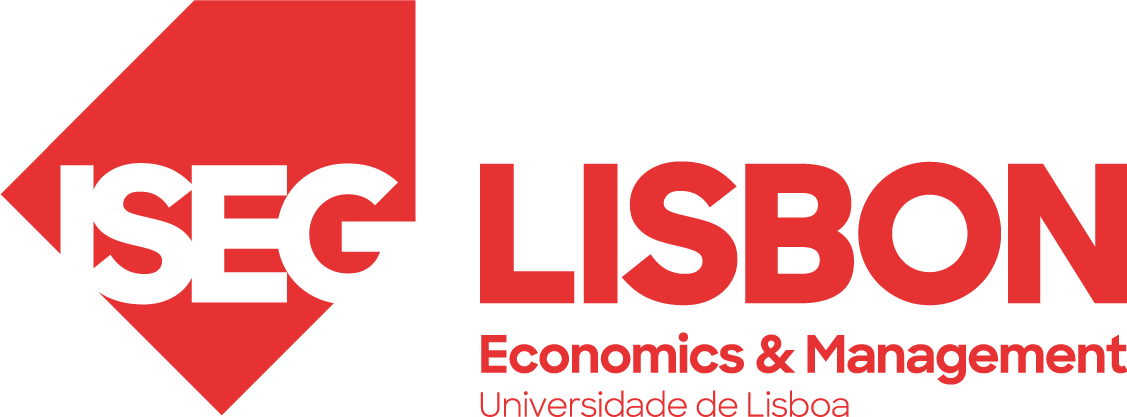



ISEG - Lisbon School of Economics and Management, Universidade de Lisboa MIM - Masters in Management

Program overview
Framed within the United Nation’s 17 Sustainable Development Goals (SDGs), the MiM program is fully developed to prepare students to be the responsible managers of the future: all management areas are taught and discussed taking into account the SDGs.
- Focus on sustainability in a digital world, from “hard” to “soft” skills.
- Develop knowledge in strategy, finance, marketing, HR, and management.
- Advance personal competences for learning and adapting to business volatility.
- Build skills for responsible management aligned with sustainable development.
- Foster information processing, alternative assessment, and decision-making skills.
- Promote critical thinking and problem-solving abilities.
- Gain competences to execute a structured final master's project.
- Develop a network relevant to professional careers.
Curriculum (courses, subject modules)
Year 1 – 1st Semester
Week 0
Global Goals Awareness Week (mandatory)
Breaks the ice and immerses you in the downtown Lisbon lifestyle, allowing you to become aware of the biggest challenges our world is facing – and think about what you can do about it.
Week 1-6
• Financial and ESG Reporting
• Business Strategy and Performance
• Organisational Culture and Behaviour
• Global Economic Trends
• Operations Management
Week 7
• Assessment Week
Week 8-13
• Financial Markets and Management
• Marketing Management
• Leading People in the 21st Century
• World Business Environment
• Excel & Python Analysis
Week 14
Global Goals Action Week (mandatory)
Takes you to the next level: Time to act, be relevant!
Year 1 – Semester 2
Week 0
What About Me? Week (mandatory)
Time to think about what you want for yourself, and how to develop the skills you need.
Week 1-6
• Quantitative Data Analysis
• Management Information Systems
Week 1-6
Choose your Major*:
• Strategic & Marketing Management
• Financial & Operations Management
• Business Data Analytics
Week 7
HERO Week (mandatory)
Human Ethical Responsible Organisations
Week 8-13
• Qualitative Data Analysis
• Global Management Challenge Simulation
Week 8-13
Choose your Major*:
• Strategic & Marketing Management
• Financial & Operations Management
• Business Data Analytics
Year 2 – 1st Semester
Week 0
Choose Your Path Week (mandatory)
Decide which final piece of work you want.
Week 1-13
MiM Final Work
• Path 1: Corporate Internship Project
• Path 2: NGO Internship Project
• Path 3: Experimental Research Project
• Path 4: Entrepreneurship Project
• Path 5: Consulting / Business Case Project
• Path 6: ISEG ULisboa Project
*You choose one major. For each major, there will be six (6) mandatory courses, taught entirely in English and distributed in two blocks in the Second Semester (1st Year).
MAJORS:
Strategy & Marketing Management
• Digital Strategy & Business Transformation
• Corporate Governance and Social Responsibility
• Customer Buying Behavior and Social Influence
• Digital Marketing and AI Integration
• Sustainable Brand Management
• Employer Branding
Financial & Operations Management
• Management Control Systems
• Data Analytics for Financial Decision Making
• Essentials of Corporate Finance
• Business Risk Management
• Sustainable Investments Management
• Assets and Portfolio Management
Business Data Analytics
• Cibersecurity
• Programming Python for Data Science
• Database Management
• AI for Management
• Big Data and Business Analytics
• Data Visualisation
Syallbus for the 2025/2026 academic year approved by the ISEG Scientific Council and subject to approval by A3ES.
Admission conditions
Required diploma(s) :
- Bachelor
Tuition & Fees
Between 7800 and 11000 €
Employment opportunities & career impact
Employment opportunities :
The Masters in Management aims to develop fundamental management knowledge (strategy, marketing, accounting, finance, human resources management, management operations, information systems and data analysis). This knowledge is critical for access to certain functions in the work to which the master seeks to respond.
In addition, this maters develops a set of behavioral and professional skills, namely: oral and written communication, teamwork, leadership, and ethical perspective. These skills are important for entering the job market and for a successful career.
Some job positions addressed by the Master include administration, general management, financial management and management consulting.
Application Deadlines
| Session 1 | |
|---|---|
| Application Deadlines | 2nd December to 3rd February |
| Admission result | Until February 14th |
| Session 2 | |
| Application Deadlines | 4th February to 31st March |
| Admission result | Until April 11th |
| Session 3 | |
| Application Deadlines | 1st Abril to 15th May |
| Admission result | Until May 30th |
Applications for Master's degrees are made exclusively online through the ISEG website, from December 2024 to May 2025.
Candidates for the Master in Management are:
- Undergraduate in a national or foreign institution in the areas of Management, Economics, Finance, Accounting, Mathematics Applied to Economics and Management, or other relevant to the study cycle.
- In accordance with Article 17 d) of Decree-Law No. 74/2006 of the 24th of March, altered and republished as Decree-Law No. 65/2018 of the 16th August, other applications considered to be appropriate by the selection panel will be evaluated on the basis of a curricular analysis.
- Those students who have not yet completed the 1st Study Cycle (Bachelors) are eligible to apply conditionally, provided that they satisfy the conditions for obtaining the degree by the end of September (of the same academic year as their application).
- The MIM is tailored for individuals who have limited or no professional experience before joining the program. Typically, candidates possess less than four years of professional experience, and the age range of our current MIM cohort falls between 22 and 24 years old.
All candidates should have an excellent command of the English language, written and spoken.
See
Legend
Video interview with the program director
Additional information / brochure
Request info / Application
| Country | School / Program | |
|---|---|---|
 |
1
    |
|
 |
2
    |
|
 |
3
    |
|
 |
4
    |
|
 |
5
    |
|
 |
6
    |
|
 |
7
    |
|
 |
8
    |
|
 |
9
    |
|
 |
10
    |
|
 |
11
    |
|
 |
12
    |
|
 |
13
    |
|
 |
14
    |
|
 |
15
    |
|
 |
16
    |
|
 |
17
    |
|
 |
18
    |
|
 |
19
    |
|
 |
20
    |
|
 |
21
    |
|
 |
22
    |
|
 |
23
    |
|
 |
24
    |
|
 |
25
    |
|
 |
26
    |
|
 |
27
    |
|
 |
28
    |
|
 |
29
    |
|
 |
30
    |
|
 |
31
    |
|
 |
32
    |
|
 |
33
    |
|
 |
34
    |
|
 |
35
    |
|
 |
36
    |
|
 |
37
    |
|
 |
38
    |
|
 |
39
    |
|
 |
40
    |
|
 |
41
    |
|
 |
42
   |
|
 |
43
   |
|
 |
44
   |
|
 |
45
   |
|
 |
46
   |
|
 |
47
   |
|
 |
48
   |
|
 |
49
   |
|
 |
50
   |
|
 |
51
   |
|
 |
52
   |
|
 |
53
   |
|
 |
54
   |
|
 |
55
   |
|
 |
56
   |
|
 |
57
   |
|
 |
58
   |
|
 |
59
   |
|
 |
60
   |






![[PDF]](/assets/img/pdf.png)
